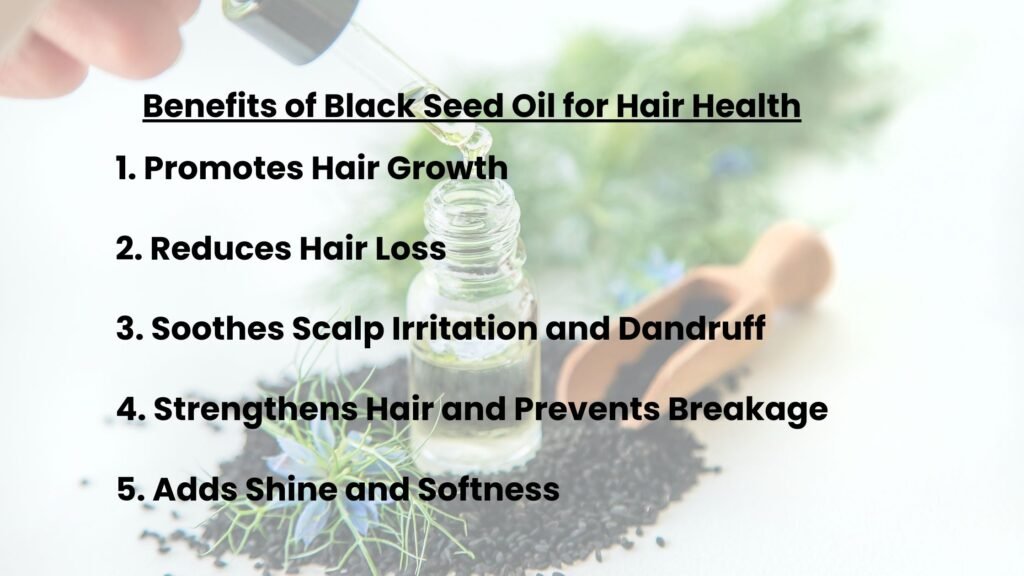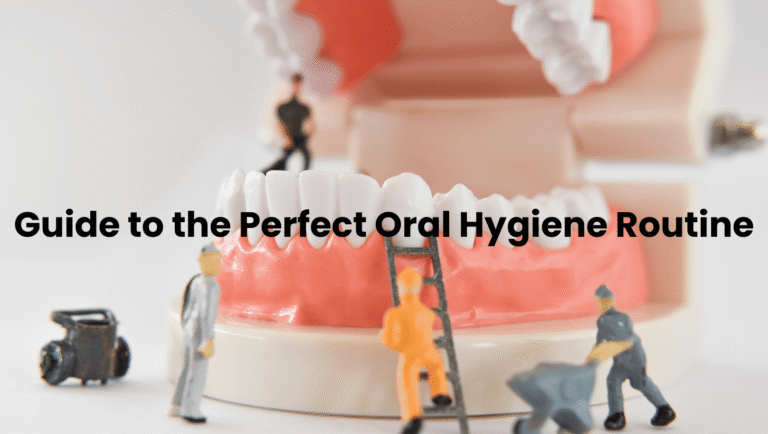Introduction
Black seed oil has gained immense popularity in hair care due to its natural ability to nourish and strengthen hair. Extracted from the seeds of Nigella sativa, this powerful oil has been used for centuries in traditional medicine for its healing properties. Rich in antioxidants, essential fatty acids, and anti-inflammatory compounds, black seed oil is known to promote healthier, stronger hair while addressing common scalp concerns. Additionally, while using black seeds in cooking is generally safe, taking black seed supplements can lead to side effects and health interactions, indicating the need for careful consideration and dosage when consumed in supplement form.
Historically, black seed oil has been a go-to remedy in ancient Egyptian, Middle Eastern, and Ayurvedic traditions for improving hair growth, reducing hair loss, and maintaining a healthy scalp. It was often used to treat various hair conditions, including dryness, dandruff, and thinning hair.
In this article, we will explore the many benefits of black seed oil for hair and scalp health. From stimulating hair growth to soothing scalp irritation, you’ll discover how this natural remedy can transform your hair care routine. Whether you’re dealing with hair fall, dullness, or breakage, black seed oil might be the solution you’ve been looking for!
What is Black Seed Oil from the Nigella Sativa Plant?
Black seed oil is a powerful natural oil derived from the seeds of Nigella sativa, a flowering plant native to Southwest Asia, the Middle East, and parts of Africa. Also known as black cumin seed oil, it has been widely used for centuries in traditional medicine for its healing and nourishing properties.
Nigella sativa seeds have diverse applications, particularly in cosmetic formulations due to their aroma and sun protection properties. They are also known for their antioxidant benefits and efficacy in treating skin conditions like psoriasis, as well as their potent antiparasitic effects against infections such as Plasmodium and Schistosoma.
This oil is packed with essential nutrients that make it a great addition to hair care routines. It contains antioxidants, essential fatty acids (omega-3, omega-6), vitamins (A, B, and C), and minerals like zinc and iron, all of which contribute to stronger, healthier hair. One of its key components, thymoquinone, is known for its anti-inflammatory, antibacterial, and antifungal properties, making black seed oil beneficial for maintaining scalp health.
In hair care, black seed oil is commonly used to:
Nourish the scalp and hair follicles to promote hair growth.
Reduce dandruff and scalp irritation with its antibacterial properties.
Strengthen hair strands, reducing breakage and split ends.
Improve hair texture and shine, making hair look healthier and more vibrant.
Whether applied directly to the scalp, mixed with carrier oils, or added to shampoos and hair masks, black seed oil offers a natural solution for those looking to enhance their hair health and manage common hair concerns.
Derived from the Nigella Sativa Plant
Black seed oil is derived from the Nigella sativa plant, a small shrub with delicate green leaves and striking white and purplish flowers. Native to Eastern Europe, Western Asia, and the Middle East, this plant has been a cornerstone of traditional medicine for centuries. The seeds of the Nigella sativa plant are particularly prized, as they contain two types of oil: fixed and essential. These oils are rich in antioxidants and fatty acids, making them a potent natural remedy for various health concerns, including hair care. The extraction of black seed oil from these seeds ensures that all the beneficial properties are retained, providing a powerful solution for nourishing and strengthening hair.
Rich in Antioxidants and Fatty Acids
Black seed oil is a treasure trove of antioxidants and fatty acids, both of which are crucial for maintaining healthy hair growth. One of the standout compounds in black seed oil is thymoquinone, known for its potent antibacterial and antifungal properties. This makes black seed oil particularly effective in treating scalp infections and creating a healthy environment for hair to thrive. Additionally, the fatty acids in black seed oil, such as linoleic acid and oleic acid, play a vital role in nourishing and moisturizing the hair and scalp. These nutrients help to lock in moisture, leaving your hair soft, shiny, and more manageable. By incorporating black seed oil into your hair care routine, you can harness these powerful ingredients to promote healthier, more vibrant hair.
Used for Centuries in Traditional Medicine
Black seed oil’s reputation as a healing elixir is well-earned, with a history of use in traditional medicine that spans centuries. Ancient cultures have long relied on this oil to treat a variety of ailments, including hair loss and scalp infections. One of the key reasons for its effectiveness is its anti-inflammatory properties, which help to reduce inflammation and promote healing in the scalp. This can be particularly beneficial for those suffering from conditions that cause scalp irritation and hair loss. Additionally, black seed oil has been used to manage high blood pressure, a condition that can contribute to hair loss. By reducing inflammation and improving overall scalp health, black seed oil supports the growth of strong, healthy hair.
Benefits of Black Seed Oil for Hair Health

1. Promotes Hair Growth
Black seed oil is widely recognized for its ability to stimulate hair follicles and promote faster, healthier hair growth. One of its key components, thymoquinone, is a powerful antioxidant and anti-inflammatory compound that helps create an optimal environment for hair follicles to thrive.
Here’s how black seed oil encourages hair growth:
Strengthens Hair Roots – The rich nutrients in black seed oil, such as essential fatty acids, vitamins, and minerals, nourish the scalp and reinforce hair roots, reducing hair fall.
Boosts Scalp Circulation – When massaged into the scalp, black seed oil helps improve blood flow, ensuring that hair follicles receive essential nutrients for stronger growth.
Prevents Hair Thinning – By fighting free radicals and reducing oxidative stress, black seed oil protects hair follicles from damage, reducing hair thinning over time.
Encourages New Hair Growth – The combination of antioxidants and antibacterial properties helps unclog hair follicles, making it easier for new hair to grow.
To use black seed oil for hair growth, apply a few drops to the scalp, gently massage it in, and leave it on for a few hours or overnight before washing it out. Regular use can result in thicker, fuller, and healthier-looking hair over time.
Regulates the Hair Growth Cycle
Black seed oil is not just a remedy for existing hair issues; it also plays a proactive role in regulating the hair growth cycle. This oil has been shown to increase hair density and reduce hair thinning, making it an effective treatment for those experiencing hair loss. By nourishing the scalp and hair follicles, black seed oil promotes healthy hair growth and helps to maintain a full, thick head of hair. Whether used as a hair mask or added to your regular shampoo, black seed oil can be a powerful ally in your quest for healthy hair. It is particularly effective in treating hair loss caused by high blood pressure and other medical conditions, offering a natural remedy for hair regrowth. By incorporating black seed oil into your hair care routine, you can support the natural hair growth cycle and enjoy healthier, more resilient hair.
2. Reduces Hair Loss
Black seed oil is an effective natural remedy for preventing excessive hair shedding and strengthening hair strands. Thanks to its rich composition of antioxidants, essential fatty acids, and vitamins, black seed oil nourishes the scalp and fortifies hair from the roots to the tips.
Here’s how black seed oil helps reduce hair loss:
Strengthens Hair Strands – The nutrients in black seed oil penetrate deep into the hair shaft, repairing weak and brittle strands, making them more resilient to breakage.
Prevents Excessive Shedding – By reducing scalp inflammation and improving hair follicle health, black seed oil helps minimize excessive hair fall, leading to thicker, fuller hair.
Hydrates and Nourishes – The oil provides deep moisture to the scalp and hair, preventing dryness, which can often lead to breakage and hair loss.
Restores Scalp Health – A healthy scalp is essential for maintaining strong hair. Black seed oil’s antibacterial and antifungal properties help prevent infections and dandruff, both of which can contribute to hair loss.
To use black seed oil for hair loss, apply a small amount directly to the scalp and massage it in for a few minutes. Let it sit for at least 30 minutes or overnight before rinsing. Regular use can help reduce hair fall and promote stronger, healthier hair growth over time.
3. Soothes Scalp Irritation and Dandruff
Black seed oil is a powerful natural remedy for maintaining a healthy scalp by addressing issues like dandruff, itching, and flakiness. Its anti-inflammatory, antifungal, and antibacterial properties make it an effective treatment for scalp conditions that cause irritation and discomfort.
Here’s how black seed oil helps soothe the scalp:
Fights Dandruff – Black seed oil has antifungal properties that combat dandruff-causing microbes, reducing flakes and irritation.
Reduces Itching and Inflammation – The anti-inflammatory effects of black seed oil help calm an irritated scalp, providing relief from redness, sensitivity, and excessive dryness.
Balances Scalp Oil Production – Black seed oil hydrates a dry scalp while helping control excess oil, preventing buildup that can contribute to dandruff.
Prevents Scalp Infections – Its antibacterial properties protect the scalp from infections that may lead to itching and flakiness.
How to Use Black Seed Oil for Scalp Health:
Scalp Massage: Mix black seed oil with a carrier oil (such as coconut or olive oil) and massage it into the scalp. Leave it on for 30 minutes to an hour before washing.
Dandruff Treatment: Combine black seed oil with lemon juice and apply it to the scalp for 15-20 minutes before rinsing.
Overnight Treatment: For deep hydration, apply a small amount of black seed oil to the scalp before bed and wash it out in the morning.
Regular use can help eliminate dandruff, soothe scalp irritation, and promote overall scalp health, leading to stronger and healthier hair.
4. Strengthens Hair and Prevents Breakage
Herbal hair oil, particularly black seed oil, is a powerhouse of essential fatty acids, vitamins, and antioxidants, making it an excellent natural remedy for strengthening hair and preventing breakage. Weak, brittle hair is often caused by lack of moisture, heat damage, or chemical treatments, but black seed oil helps restore elasticity and resilience to hair strands.
How Black Seed Oil Strengthens Hair:
Enhances Hair Elasticity – The essential fatty acids in black seed oil coat the hair shaft, making hair more flexible and less prone to snapping.
Prevents Split Ends – Black seed oil deeply nourishes and moisturizes hair, helping to seal split ends and prevent further damage.
Reduces Hair Breakage – With its rich vitamin and mineral content, black seed oil strengthens hair strands from root to tip, making them more resistant to environmental stressors and heat styling.
Protects Against Hair Damage – The antioxidants in black seed oil help protect hair from UV damage, pollution, and harsh styling products.
How to Use Black Seed Oil for Stronger Hair:
Deep Conditioning Treatment: Mix black seed oil with a carrier oil like coconut or argan oil and apply it to the hair. Leave it on for 30 minutes to an hour before rinsing.
Leave-in Treatment: Apply a small amount of black seed oil to the ends of damp hair to prevent split ends and add shine.
Hair Mask: Mix black seed oil with yogurt or aloe vera gel and apply to the hair for 20-30 minutes before washing.
Regular use of black seed oil strengthens hair strands, reduces breakage, and keeps hair looking healthier and more vibrant.
5. Adds Shine and Softness
Black seed oil is a natural hair conditioner that enhances shine, softness, and manageability. Packed with essential fatty acids, vitamins, and antioxidants, it helps nourish hair strands from root to tip, leaving hair silky, smooth, and radiant.
How Black Seed Oil Enhances Hair Shine and Softness:
Deeply Moisturizes Hair – The rich fatty acid content seals in moisture, preventing dryness and frizz.
Improves Hair Texture – Regular use of black seed oil makes hair smoother and more manageable by reducing roughness.
Enhances Natural Shine – The oil forms a protective layer around each strand, reflecting light and making hair appear glossier and healthier.
Softens Coarse and Brittle Hair – Ideal for dry, curly, or damaged hair, black seed oil softens and smooths the cuticle, reducing tangles and breakage.
How to Use Black Seed Oil for Shinier, Softer Hair:
Pre-Wash Treatment: Apply black seed oil to dry hair and let it sit for 30 minutes to an hour before shampooing.
Leave-In Serum: Use a few drops of black seed oil on damp hair to lock in moisture and boost shine.
DIY Hair Mask: Mix black seed oil with honey or aloe vera gel and apply to hair for deep conditioning.
By adding black seed oil to your hair care routine, you can transform dull, dry strands into silky, shiny, and healthy-looking hair.
How to Use Black Seed Oil for Hair Care
Black seed oil is a powerful natural remedy that can nourish, strengthen, and revitalize hair when used correctly. Here’s how to incorporate it into your hair care routine for the best results.
Methods of Application:
Scalp Massage – Warm a few drops of black seed oil and massage it into the scalp for 5-10 minutes to stimulate blood circulation and promote hair growth.
Hair Mask Treatment – Mix black seed oil with other nourishing ingredients like coconut oil or aloe vera and apply it to the length of your hair for deep conditioning.
Blending with Carrier Oils – Since black seed oil is potent, mix it with a carrier oil like olive oil, castor oil, or argan oil to enhance its benefits while reducing irritation.
Leave-In Treatment – Apply a small amount of black seed oil to damp hair to control frizz, add shine, and lock in moisture.
How Often to Use Black Seed Oil for Hair:
For hair growth and scalp health – Use 2-3 times a week as a scalp massage or hair mask.
For shine and conditioning – Use a few drops as a leave-in treatment after washing your hair.
For deep repair – Apply an overnight treatment once a week for intensive nourishment.
DIY Black Seed Oil Hair Mask Recipe
Ingredients:
2 tablespoons black seed oil
1 tablespoon coconut oil (for hydration)
1 tablespoon honey (for moisture)
1 egg yolk (for protein and strength)
Instructions:
Mix all ingredients in a bowl until well combined.
Apply the mixture to your scalp and hair strands, ensuring full coverage.
Leave it on for 30-45 minutes.
Rinse with lukewarm water and shampoo as usual.
By using black seed oil consistently, you can achieve stronger, shinier, and healthier hair naturally!
Additional Tips for Healthy Hair
Incorporating black seed oil into your hair care routine can be highly beneficial, but pairing it with healthy lifestyle habits will maximize its effects. Here are some extra tips to ensure strong, vibrant, and nourished hair.
1. Combine Black Seed Oil with a Balanced Diet and Hydration
Eat nutrient-rich foods – Include protein, vitamins (biotin, vitamin E, and omega-3 fatty acids) from sources like eggs, fish, nuts, and leafy greens to support hair growth.
Stay hydrated – Drink plenty of water to keep your hair and scalp moisturized from within. Dehydration can lead to brittle strands and dryness.
Incorporate essential minerals – Zinc, iron, and magnesium play a vital role in preventing hair thinning and boosting strength.
2. Avoid Harsh Chemicals and Excessive Heat Styling
Limit heat exposure – Frequent use of blow dryers, straighteners, and curling irons can weaken hair and cause breakage. Use heat tools sparingly and always apply a heat protectant.
Opt for sulfate-free shampoos – Harsh shampoos strip natural oils from the scalp. Choose mild, sulfate-free shampoos to maintain moisture.
Avoid excessive hair dyeing – Chemical treatments and bleaching can damage the hair cuticle, making hair prone to split ends and breakage.
3. Best Hair Care Practices to Maximize Benefits
Use a wide-tooth comb – Prevent breakage by gently detangling wet hair with a wide-tooth comb instead of harsh brushing.
Trim regularly – Get rid of split ends every 6-8 weeks to maintain healthy growth.
Massage your scalp – Boost blood circulation by massaging black seed oil into your scalp at least twice a week for deep nourishment.
Sleep on a silk pillowcase – Reduce friction and minimize hair damage by sleeping on silk or satin pillowcases instead of cotton.
By following these simple yet effective tips, you can enhance the benefits of black seed oil and maintain strong, shiny, and resilient hair naturally!
Choosing the Best Black Seed Oil for Hair
Selecting high-quality black seed oil is crucial to ensure you get the maximum benefits for your hair. With many options available, here’s how to pick the best black seed oil for hair care.
1. Opt for Cold-Pressed and Organic Black Seed Oil
Cold-pressed extraction ensures that the oil retains its nutrients, antioxidants, and essential fatty acids without exposure to heat or chemicals.
Organic certification means the oil is free from pesticides, additives, and synthetic chemicals, making it safer for your scalp and hair.
2. Check for 100% Pure Black Seed Oil
Look for 100% pure Nigella sativa oil on the ingredients list. Some brands mix black seed oil with carrier oils or fillers, which reduces potency.
Avoid products that contain artificial fragrances, preservatives, or colorants.
3. Choose Dark Glass Bottles Over Plastic
High-quality black seed oil is typically stored in dark glass bottles to preserve freshness and prevent oxidation from light exposure.
Plastic bottles may leach chemicals into the oil, affecting its purity and effectiveness.
4. Consider the Oil’s Color and Aroma
Pure black seed oil has a deep amber or dark brown color.
It should have a strong, slightly bitter, and peppery aroma – a sign of high thymoquinone content, the compound responsible for its benefits.
5. Read Reviews and Brand Reputation
Research reputable brands and check customer reviews for feedback on effectiveness and quality.
Choose brands with third-party lab testing to ensure purity and authenticity.
By selecting a high-quality black seed oil, you can maximize its benefits and nourish your hair with the best natural care!
Precautions and Possible Side Effects of Black Seed Oil
While black seed oil offers numerous hair health benefits, it is essential to use it safely and be aware of potential side effects. Here are some important precautions to consider:
1. Who Should Be Cautious When Using Black Seed Oil?
People with sensitive skin: Black seed oil is potent and may cause mild irritation in some individuals.
Pregnant and breastfeeding women: Consult a doctor before using black seed oil, especially in large amounts, as it may affect hormonal balance.
Individuals with allergies: If you are allergic to plants in the Ranunculaceae family (buttercup family), you might experience a reaction.
2. Perform a Patch Test to Avoid Allergic Reactions
Before applying black seed oil to your scalp or hair, always perform a patch test:
Apply a small amount of diluted black seed oil to your inner wrist or behind the ear.
Wait 24 hours to check for any redness, itching, or irritation.
If no reaction occurs, it is generally safe to use.
3. Safe Usage Guidelines for Topical Application
Dilute with a carrier oil: Black seed oil is potent; mix it with coconut oil, olive oil, or argan oil before applying it to your scalp and hair.
Avoid contact with eyes and mucous membranes: If it accidentally gets into your eyes, rinse thoroughly with water.
Use in moderation: Excessive use may lead to dryness or scalp sensitivity. Apply 2-3 times a week for best results.
By following these precautions, you can safely enjoy the benefits of black seed oil while minimizing the risk of side effects!
Common Questions About Black Seed Oil
Is black seed oil a DHT blocker? No, black seed oil does not influence your DHT levels.
Is it normal for my scalp to burn after using black seed oil for my hair? No, experiencing any discomfort after using black seed oil is not normal.
Does black seed oil have other benefits aside from hair health? Yes, black seed oil has numerous health benefits, including reducing inflammatory and autoimmune disorders, improving respiratory system function, and more.
Alternatives to Black Seed Oil for Hair Growth
Other natural remedies like pumpkin seed oil and rosemary oil can also boost hair density in certain forms of alopecia.
Hair growth medication like finasteride and dutasteride can also be effective in promoting hair growth.
Hair loss therapies like PRP treatments and low-level laser therapy (LLLT) can also help improve hair growth.
A hair transplant is a simple outpatient surgery that can help restore hair growth.
Conclusion
Black seed oil is a powerful natural remedy that supports hair health in multiple ways. From promoting hair growth and reducing hair loss to soothing scalp irritation and strengthening hair strands, its nutrient-rich composition makes it an excellent addition to any hair care routine.
If you’re looking for a natural way to improve hair texture, add shine, and prevent breakage, black seed oil is worth trying. Its antioxidants, fatty acids, and anti-inflammatory properties make it an effective and chemical-free solution for healthier, stronger hair.




